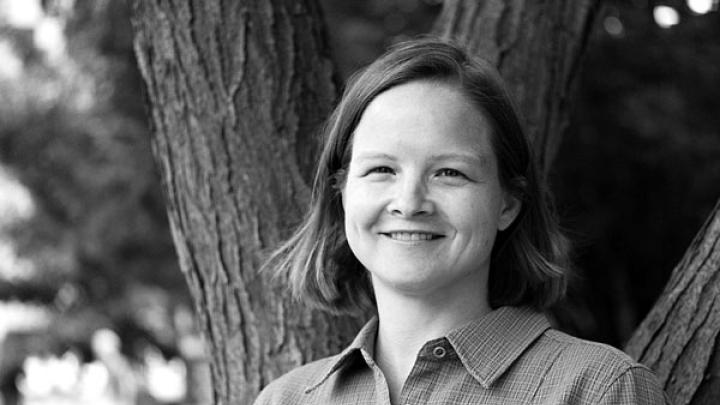“The thing I enjoyed about physics,” says Kathy Perkins ’92, “was being able to understand the concepts and use those to explain the world around me. It was nice not to have to memorize formulas. I was able to digest a concept and figure out how to use it.” Today, Perkins combines that love for the elegance of physics with a desire to make a difference. As director of the nonprofit PhET Interactive Simulations, she oversees the development and study of free online simulations for teaching science and math (http://phet.colorado.edu). They cover ideas ranging from states of matter to quantum mechanics, but retain an intuitive, game-like feel, with colorful buttons and click-and-drag sliders. Downloaded and run more than 25 million times a year, they have been translated into more than 65 different languages.
Perkins worked at an environmental consulting firm before entering Harvard’s department of earth and planetary sciences; she received her Ph.D. in 2000. After a postdoc at the National Oceanic and Atmospheric Administration, her career took a slight turn. She began investigating physics-education research while a postdoctoral fellow with Nobel laureate Carl Wieman at the University of Colorado. Wieman had made use of simulations in his Nobel Lecture, and soon after he founded PhET in 2002, Perkins joined the effort to develop and test simulations for classroom use. (Originally, PhET stood for the Physics Education Technology project, but the group has now expanded its work to cover other areas of science.) “It really was inspiring to recognize that you could study how people learn science, and study different teaching techniques for science, and then implement that in the classroom,” she says.
Now Perkins oversees the teams of teachers, content experts, software developers, and education researchers who work together on each simulation. Each team uses education research to tailor the simulations to students’ conceptual difficulties and to adjust the design based on student interviews. “Simulations can show dynamic things and make the invisible visible,” she explains. For example, one of PhET’s most popular simulations is the Circuit Construction Kit, in which students use virtual wires, resistors, light bulbs, and switches to assemble any circuit design they can imagine. Small, moving circles represent electrons, showing where current is flowing.
PhET provides its simulations for free thanks to funding from grants (donors include the National Science Foundation and the Hewlett Foundation) and from individual and corporate sponsors (among them Texas Instruments and Pearson). Perkins hopes that the simulations’ accessibility and interactive nature will increase scientific literacy and promote student engagement in the classroom. “We want the simulations to be an environment in which students can engage in scientist-like exploration,” she says. Students can try things and see what happens—even to the point of simulated explosions. And the same simulation can be used for different age groups, with successively deeper concepts accessible for more advanced students.
For Perkins, PhET is a way to draw on all her educational experiences in a meaningful way. “I participate in almost every simulation design,” she says. “I really love it, and that’s the core of what our project is. We’re creating this tool that teachers all over the world are using to help their students learn science better. I don’t think that I could give that up, even with all the extra managerial work that I have. It’s too much fun.”









